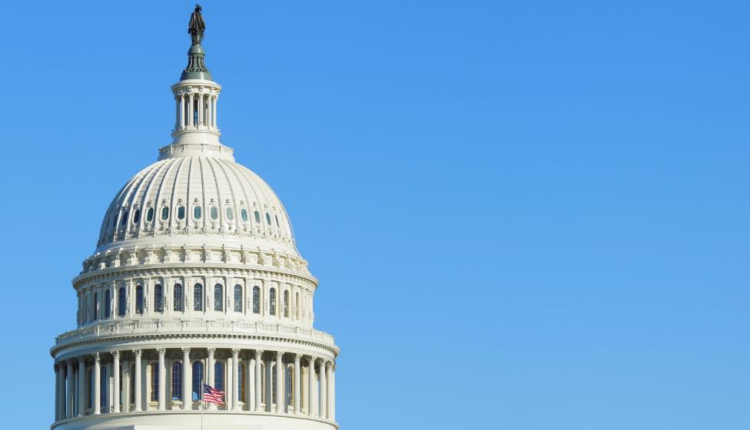Regulatory Issues to Watch in the FY 2021 Spending and COVID-19 Stimulus Legislation
The stimulus and omnibus spending for FY 2021, known as the Consolidated Appropriations Act, 2021, had many provisions for small business relief during the COVID-19 pandemic, including a second round of funding through the SBA’s Paycheck Protection Program (PPP), updates to the Economic Injury Disaster Loan (EIDL) program, and the Shuttered Venue Operators Grant program. But bills of this size contain other, lesser known issues that may not directly mention small businesses, but can still impact them. Many times, these large spending bills are packed with changes to regulatory issues that may not always make the front page of the paper or jump to the top of social media news feeds. Additionally, this particular bill contains both COVID-19 relief and other, broader regulatory changes.
Advocacy staff have been reviewing thousands of pages of the Consolidated Appropriations Act (referred to as the legislative package in this article) for potential regulatory issues that may impact small businesses. Below are some of the issues or activities that Advocacy staff will be monitoring as agencies continue to implement the provisions of the legislative package. Please note that this is not meant to be an exhaustive list of all regulatory issues related to small businesses:
- The FFCRA, which became effective on April 1, 2020, required certain employers (including small businesses) to provide employees with paid sick leave or expanded family and medical leave for specified reasons related to COVID-19 through December 31, 2020. The legislative package did not extend this requirement beyond December 31, 2020, so employers are no longer required to provide FFCRA leave to employees. However, the legislative package extended employer tax credits for paid sick leave and expanded family and medical leave voluntarily provided to employees until March 31, 2021. This means that an employer may voluntarily decide to provide paid sick leave or family and medical leave to its employees for specified reasons related to COVID-19 and can receive tax credits for doing so. For more information, visit the Department of Labor’s and the Internal Revenue Service’s websites.
- The Agriculture Improvement Act of 2018 directed the Department of Agriculture (USDA) to issue regulations and guidance to implement a program for the commercial production of hemp in the United States. Advocacy has conducted extensive outreach on the USDA’s efforts to establish a domestic hemp production program, including public comment letters sent to the agency on January 29, 2020 and October 8, 2020. The authority for hemp production provided in the 2014 Farm Bill was extended until January 1, 2022 in the Appropriations Act. On January 19, 2021, the USDA published a final rule outlining policies for domestic hemp production. Read about the final rule in our blog post here.
- The American Innovation and Manufacturing Act of 2020 was included in the legislative package. This Act phases down the production and consumption of hydrofluorocarbons (HFCs) over 15 years, limiting the production and consumption of regulated HFCs to 15 percent of baseline levels beginning in 2036. This Act will be implemented by the Environmental Protection Agency (EPA). There is a concern that this Act could put small businesses at a disadvantage if future production and consumption of HFCs are not allocated fairly. Advocacy looks forward to working with EPA to ensure that any implementing regulations comply with the Regulatory Flexibility Act, and that small business impacts will be appropriately considered.
- When Congress passed the CARES Act in March 2020, the legislation did not address the deductibility of expenses paid with forgiven PPP loans. Advocacy held a roundtable on December 4, 2020 to discuss the federal and state tax issues surrounding the PPP. Advocacy then sent a letter to the House and Senate Small Business Committees on December 15, 2020 urging a legislative fix for the issue. The COVID-related Tax Relief Act of 2020, included in the Spending Bill, clarified that business expenses paid with forgiven PPP loans are deductible. Read more about this issue in our blog post here.
- First introduced in 2016, the Copyright Alternative in Small-Claims Enforcement (CASE) Act was included in the legislative package. The CASE Act would establish a small claims court for copyright disputes. It would also make illegal streaming a felony. The CASE Act establishes a copyright tribunal within the Copyright Office that would hear infringement claims with awards for claims less than $30,000. This would provide an avenue for independent creators to enforce their copyright rights without having to go through the more expensive federal court system.
Over the past year, Advocacy has sought to help small businesses navigate the COVID-19 pandemic. Advocacy will post future updates on regulatory issues on our website. In addition, be sure to keep an eye on our COVID-19 Resources for Small Business page, which we update regularly as federal agencies continue to implement regulations and policies concerning the COVID-19 pandemic.


Comments are closed.